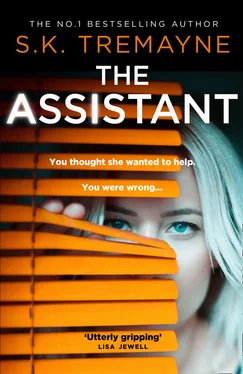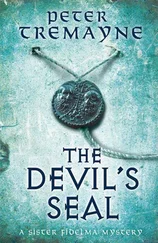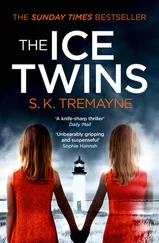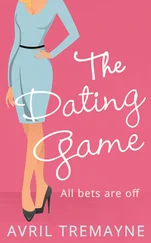Not knowing what else to do, I helplessly pick up my phone: a reflex reaction. Then I stare at the screen, bewildered: the phone says I have twenty missed calls. From my mother. In the last hour.
My phone has been on the whole time. It is not on mute. Yet I missed them all.
Twenty?
Janet Ferguson was calling for her dog to come in from the cold.
‘Cindy, come on, it’s freezing. You’ll die out there.’ Janet gazed across the frosted grass of her back garden. Where was she? It was hardly a vast, stately acreage of meadows. This was a suburban back garden, darkened by winter, just large enough for a small family: attached to a house designed for a small family. Indeed, now that this small family was gone, and Robert was long dead, and Jo and Will had grown up, Janet had often thought of selling. Moving somewhere else entirely, a one-bedroom flat somewhere central, or out of London altogether.
Thornton Heath depressed her these days, with its tatty signs, and faded cafes, the sudden outcrop of Polish, Romanian, Somalian, Bulgarian shops where she didn’t understand the food, the accents, the people, much as she smilingly tried to fit in. It was an outlying suburb of London that never quite made it, never got gentrified, never got fashionable attention, yet never got quite so rundown the government was prepared to spend money.
It was time, surely, for Janet to make the same move as her friends and neighbours. Yes she would lose the much-loved garden with all its memories. And so be it. Cindy would have to put up with it. Restrictions. Life was all about increasing restrictions. Janet put up with her pacemaker, and monthly visits to the hospital, because that’s simply what you did. Life slowly constricted around you, like a snake that would ultimately kill you. And one day you went into a hospital, and you never came out.
Like Robert. Dead at his own hand, in his early forties.
She remembered the lingerie he’d stuffed in the car exhaust, so he could fill the car with carbon monoxide.
‘Cindy!’
Janet could hear the dog. Right at the end of the foggy, white-frosted garden, probably digging up some old bones, or boots. The radio was calling it the coldest start to January in decades, and likely to get worse. Janet remembered when she was young, the bitter winter of 1963, when it was like this: it kept getting colder and snowier – on and on until March.
But Cindy, it seemed, was determined to have her fun, whatever the weather. And now Janet’s phone was ringing, and vibrating, on the sink.
Closing the kitchen door, Janet reached for her mobile.
‘This is Janet Ferguson.’
‘Mum. What the hell is wrong?’
‘Sorry?’
Her daughter’s voice was urgent.
‘Twenty calls. What’s the matter, Mum? Are you all right? You called me twenty times ?’
Janet frowned, puzzled.
‘No, dear. I never called you. Not once.’
‘But my phone says you did!’
‘Well, I don’t know about that.’
‘Twenty times, Mum. It says it right here. Missed calls. Twenty! I was worried about you!’
Unsure what to say, Janet gazed out at the garden. Cindy was chasing a football. A very old, half-burst, dog-chewed football, muddy and mouldy in the murk. Janet remembered Jo and Will playing with it, alongside their father. That long ago. Oh, too long ago. All dead now, that old life was all dead. Where did it go?
She returned to her daughter, and this stilted conversation.
‘Look, darling, it’s nice you’re worried, but I am fine and I’m not going to suddenly call you twenty times in one morning, for no discernible reason.’
‘OK.’
‘I mean, Jo: we speak about once a week, when you remember to ring me? Not twenty times a day.’
It was a tiny barb, but it was designed to sting. Judging by her daughter’s pause, it had done the job. The silence was long enough to be properly awkward. Janet felt obliged to fill it.
‘Isn’t is possible, darling, that your smartphone is playing up? I don’t know why you have those things, dear. Cameras, music, notebook, all in one little machine – what if you lose it? It’s your whole life.’
‘Everyone has them, Mum. Look, Mum, are you sure you didn’t call me?’
‘Yes, I am.’
‘OK, sorry, Mum. I just, I don’t … Ah. Ah. Perhaps my phone is on the blink. Like everything else in this place.’
Janet shrugged, not knowing how to respond. She opened the kitchen door to let the dog come in, shivering snowflakes. As she bent to pat the damp dog, she looked at the kitchen shelf and the framed pictures of her two children, and her lovely grandson Caleb. Then Jo at her graduation. Smiling and confident. The old Jo.
There was something different in her daughter’s attitude this afternoon. Jo was normally so outgoing, can-do, optimistic. Today she sounded vulnerable. Needy. Agitated.
‘Jo … are you all right?’
‘What? Why?’
‘You sound nervous. Are you OK up there, the new flat, Tabitha, everything?’
‘Yes, yes of course, why yes, I’m fine. Fine. Absolutely fine. We’re all fine .’
‘Yes?’
‘Yes! The flat is gorgeous, I love Camden, it’s got a brilliant buzz. The park is around the corner. I can walk to Soho. It’s much better than NW Tundra.’
The answer came far too quickly. Something was definitely wrong.
‘Well, that’s good, that’s nice for you … Hey. You know I got a visit from Simon the other day?’
Another stiff pause. Janet could picture her daughter’s surprised face.
‘Simon? My Si? Simon Todd ?’
‘Yes, dear. He does come and visit, sometimes he brings Polly and the baby, so I can see little Grace.’
Her daughter said nothing, Janet sensed a pang of envy, down the line. She hurried on,
‘I mean, his own family still lives down this way, you do remember that? His mum and dad? The Todds around the corner on Lesley Avenue? They’re practically the last people I know from – from the old times. And we’re still friendly, so he pops by.’
‘You mean … my ex-husband is secretly visiting you?’
Janet felt her impatience rising at this.
‘Goodness! It’s not some dark secret, Jo. I always liked Simon, we always got on well. He was a decent husband to you. You know I think that. I always thought that. In fact, I wondered …’
‘Whether things would have been different if we’d had kids? Yes, I know, Mum.’ The sharpness in Jo’s voice was undisguised. ‘You’ve told me several thousand times. Well, I decided not to. And now he’s got one with Polly, so that’s fine, isn’t it? Perhaps you could adopt her as your grand-daughter, since I’m probably not going to give you one, and little Caleb is on the other side of the world.’
This time the barbs stung the mother. Jo was clearly envious, and she was clearly hurting.
Janet sighed, heavily.
Jo got in first.
‘Oh God. Look. Sorry. I shouldn’t have snapped. Sorry, Mum. I’m so sorry! It’s nice that Simon comes to see you, and Polly, and Grace, and everything, that’s nice of him, I should come more often myself.’
‘Don’t worry. I know it’s a long way.’
‘No, it’s not good enough, Mum, I am sorry, I promise I will come over, at the weekend.’
Janet’s witty, bouncy daughter sounded as deflated as that ancient football in the frozen garden. Feeling emboldened, by her concern, Janet decided to reach out.
‘Do you mind my asking something?’
A pause.
‘Go ahead, Mum.’
‘Why didn’t you want children, Jo? Simon was so keen to be a dad, he told me that many times, and he was devoted to you. And I know this led to your divorce, at least in part.’
Читать дальше












